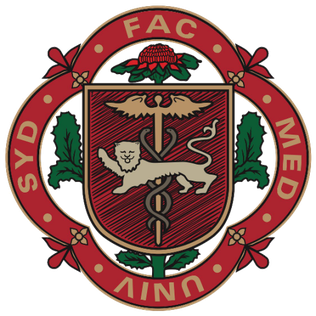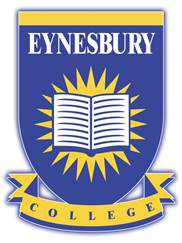
Tertiary education fees in Australia are payable for courses at tertiary education institutions. Responsibility for fees in vocational education and training (VET) rests primarily with the state and territory governments, while fees policy in higher education is largely controlled by the Commonwealth Government.
An examination board is an organization that sets examinations, is responsible for marking them, and distributes the results. Some are run by governmental entities; some are run as not-for-profit organizations.
The South Australian Certificate of Education (SACE) is awarded to students who have successfully completed their senior secondary schooling in the state of South Australia.
University admission or college admission is the process through which students enter tertiary education at universities and colleges. Systems vary widely from country to country, and sometimes from institution to institution.
The Equivalent National Tertiary Entrance Rank (ENTER) was the national Australian tertiary entrance rank, administered by Universities Australia. It was a percentile ranking, designed to simplify the comparison of entrance levels for students educated in different processes of admission for university applicants from interstate. It was replaced by the Australian Tertiary Admission Rank from 2010.
Pre-medical is an educational track that undergraduate students mostly in the United States pursue prior to becoming medical students. It involves activities that prepare a student for medical school, such as pre-med coursework, volunteer activities, clinical experience, research, and the application process. Some pre-med programs providing broad preparation are referred to as “pre-professional” and may simultaneously prepare students for entry into a variety of first professional degree or graduate school programs that require similar prerequisites.
The Tertiary Entrance Rank (TER) was a tertiary entrance score used in several Australian states, the ACT and the Northern Territory as a tool for selection to universities in Australia. As of 2010, it has been replaced by the Australian Tertiary Admission Rank in all states and territories.

The Victorian Tertiary Admissions Centre (VTAC) is an independent shared admissions service facilitating access to tertiary education and further study opportunities and pathways for learners in Victoria and beyond. Formed in 1967 and incorporated as a company by limited guarantee in 2023, VTAC is a not-for-profit organisation and a member of the Australasian Conference of Tertiary Admission Centres (ACTAC).
The Special Tertiary Admissions Test (STAT) is a group of four scholastic aptitude tests used for admission into undergraduate programs at Australian universities, for students without a recent Australian Tertiary Admission Rank (ATAR). Some universities require STAT testing for admission to particular programs or courses. The Australian Council for Educational Research designs the examinations. The central tertiary admissions centre in each Australian state and territory and the University of Tasmania administer the STAT examinations.

The Queensland Tertiary Admissions Centre (QTAC) is a non-profit organisation that provides undergraduate and postgraduate tertiary entry and application services for 17 major universities and tertiary education institutions in Queensland and northern New South Wales. QTAC is funded entirely by student application fees.
The Faculty of Law and Justice of the University of New South Wales is a law school situated in Sydney, Australia. It is widely regarded as one of Australia's top law schools. The 2021 QS World University Rankings rank the UNSW Law Faculty 13th in the world, first for undergraduate law in Australia, 2nd overall in Australia and 3rd in the Asia-Pacific region, and the 2021 Times Higher Education subject rankings also rank it second in Australia, making it the top ranked law school in New South Wales according to both tables, as well as being the top undergraduate Law school in the country.

The University of Sydney School of Medicine, also known as Sydney Medical School (SMS) is the graduate medical school of the University of Sydney. Established in 1856, it is the first medical school in Australia. In 2018, Sydney Medical School joined the newly formed Faculty of Medicine and Health at the University of Sydney. SMS is ranked 19th in the world and second in Australia in the 2021 QS Subject Rankings for medicine.

Tertiary education in Australia is formal education beyond high school in Australia, consisting of both government and private institutions and divided into two sectors; Higher Education and Vocational Education and Training (VET) provided by government-owned TAFEs & private Registered Training Organisations (RTO). Australian Qualifications Framework (AQF), the Australian national education policy, classifies tertiary qualification into 10 levels: level 1 to 4 vocational certificates ; level 5 & 6 undergraduate diploma and advanced diploma; level 6 associate degree; level 7 bachelor degree, level 8 bachelor honours degree & graduate certificates and graduate diplomas; level 9 for master's degree; and level 10 PhD. Most universities are government owned and mostly self-regulated. For other institutes there are two national regulators for tertiary education for registration, recognition and quality assurance of both the "provider institutes" as well as the "individual courses" provided by the providers. Tertiary Education Quality and Standards Agency (TEQSA) regulates institutes which provide education from level 5 or above. Australian Skills Quality Authority (ASQA) regulates institutes which provide education from level 1 to level 6.

The Universities Admissions Centre is an organisation that processes applications for admission to tertiary education courses, mainly at institutions in New South Wales and the Australian Capital Territory. A not-for-profit company incorporated in July 1995, it has offices located at Sydney Olympic Park.
The Northern Territory Certificate of Education and Training (NTCET), formerly Northern Territory Certificate of Education (NTCE), is the credential awarded to high school students who successfully complete senior high school level studies in the Northern Territory of Australia.

The Australian Tertiary Admission Rank (ATAR) for all domestic students, or the ATAR-based Combined Rank (CR) for all International Baccalaureate (IB) students, are the primary criteria for determining the Selection Rank (SR) for admission into undergraduate courses in Australian public universities. Domestic Students are students who are Australian or New Zealand citizens, or Australian permanent residents, or the holder of long-term refugee visa. ATAR & CR are not applicable for international students as they must apply directly to each university separately and their SR is calculated by the university. The ATAR is calculated by each state or territory's own state-level Tertiary Admission Center (TAC) for all domestic students studying within their geographical limits. Interstate Domestic Students must apply to the TAC of their respective state. The Selection Rank is calculated by each University separately based on the ATAR or CR as well as additional points for each university's unique criteria such as a student's educational disadvantage or subject performance. ATAR is not a mark, but rather a percentile ranking between 0.00 and 99.95 which shows the student’s relative position compared to all other students in the range of 16 to 20 years old who would have completed their respective year 12 exams in that state in a year.

Eynesbury Senior College was an independent co-educational senior high school that operated between 1990 and 2021. It was located on Franklin Street in the city centre of Adelaide, South Australia in a five-storey, multi-function complex and catered for Year 10, 11 and 12 students.

APM College of Business and Communication is an Australian private business college that offers both tertiary education and vocational education and training. The college first opened in 1986 as the APM Training Institute in St Leonards, Sydney.

The Tertiary Institutions Service Centre (TISC) is the administrative body that processes tertiary course applications for universities and other tertiary institutions in the state of Western Australia. It is a member of the Australasian Conference of Tertiary Admission Centres (ACTAC).










